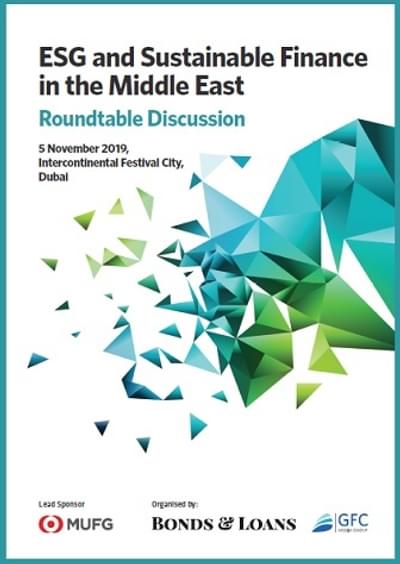Middle East Embraces ESG Formats in Financial Issuance
Hyphen Web Desk

Recent developments highlight this transition, with several high-profile issuances adhering to ESG principles. Saudi Arabia, for instance, has taken notable steps in this direction. The Kingdom’s Public Investment Fund (PIF) recently issued its inaugural green bond, a landmark move underscoring the nation's commitment to sustainable finance. This green bond, aimed at funding projects that support environmental sustainability, represents a critical milestone in the region's financial landscape.
Similarly, the United Arab Emirates (UAE) has been proactive in embracing ESG formats. The Dubai Electricity and Water Authority (DEWA) issued a significant green bond, earmarked for renewable energy projects. This issuance not only reinforces Dubai's ambition to become a leading green economy but also sets a benchmark for other entities in the region to follow.
Middle East prioritizes sustainable finance strategies as part of a broader economic diversification agenda. Governments and corporations are increasingly integrating ESG factors into their financial planning, reflecting a strategic shift towards long-term sustainability. This trend is also evident in the increasing number of regional banks that have adopted ESG frameworks to guide their lending and investment activities.
The financial sector in the Middle East is responding to the global call for sustainable finance by incorporating ESG metrics into their operations. This includes evaluating the environmental and social impact of their investments and ensuring governance practices that promote transparency and accountability. By doing so, Middle Eastern issuers are aligning themselves with international best practices, thereby enhancing their appeal to global investors who are increasingly focused on ESG criteria.
Market experts note that the move towards ESG formats is not just a response to external pressures but also a strategic necessity. As global markets evolve, the demand for sustainable investment options continues to grow. Middle Eastern issuers, recognizing this trend, are adapting their financial instruments to meet this demand. This shift is expected to attract a broader investor base, including those who prioritize sustainability in their investment decisions.
The region's regulators are also playing a crucial role in this transition. Regulatory bodies in countries like Saudi Arabia and the UAE are introducing guidelines and frameworks to support ESG-compliant financial activities. These measures are designed to encourage issuers to adopt sustainable practices and ensure that the financial markets operate in a manner that supports long-term environmental and social goals.
As ESG formats gain traction, the Middle East is poised to become a significant player in the global sustainable finance arena. The region's commitment to integrating ESG principles into financial issuance demonstrates a forward-thinking approach that balances economic growth with sustainability. This commitment is expected to yield substantial benefits, both in terms of attracting international investment and promoting sustainable development within the region.
The growing emphasis on ESG in the Middle East reflects a broader global trend towards sustainable finance. By adopting ESG formats, Middle Eastern issuers are not only meeting the expectations of global investors but also contributing to the global effort to address pressing environmental and social challenges. This alignment with global sustainability standards positions the region as a leader in the transition towards a more sustainable and responsible financial ecosystem.
The Middle East's embrace of ESG formats signifies a crucial step towards achieving sustainable development goals. As the region continues to innovate and adapt its financial strategies to incorporate ESG principles, it sets a powerful example for other emerging markets. This evolution highlights the region's potential to drive positive change in the global financial landscape.
Labels:
#Syndication
Share:
